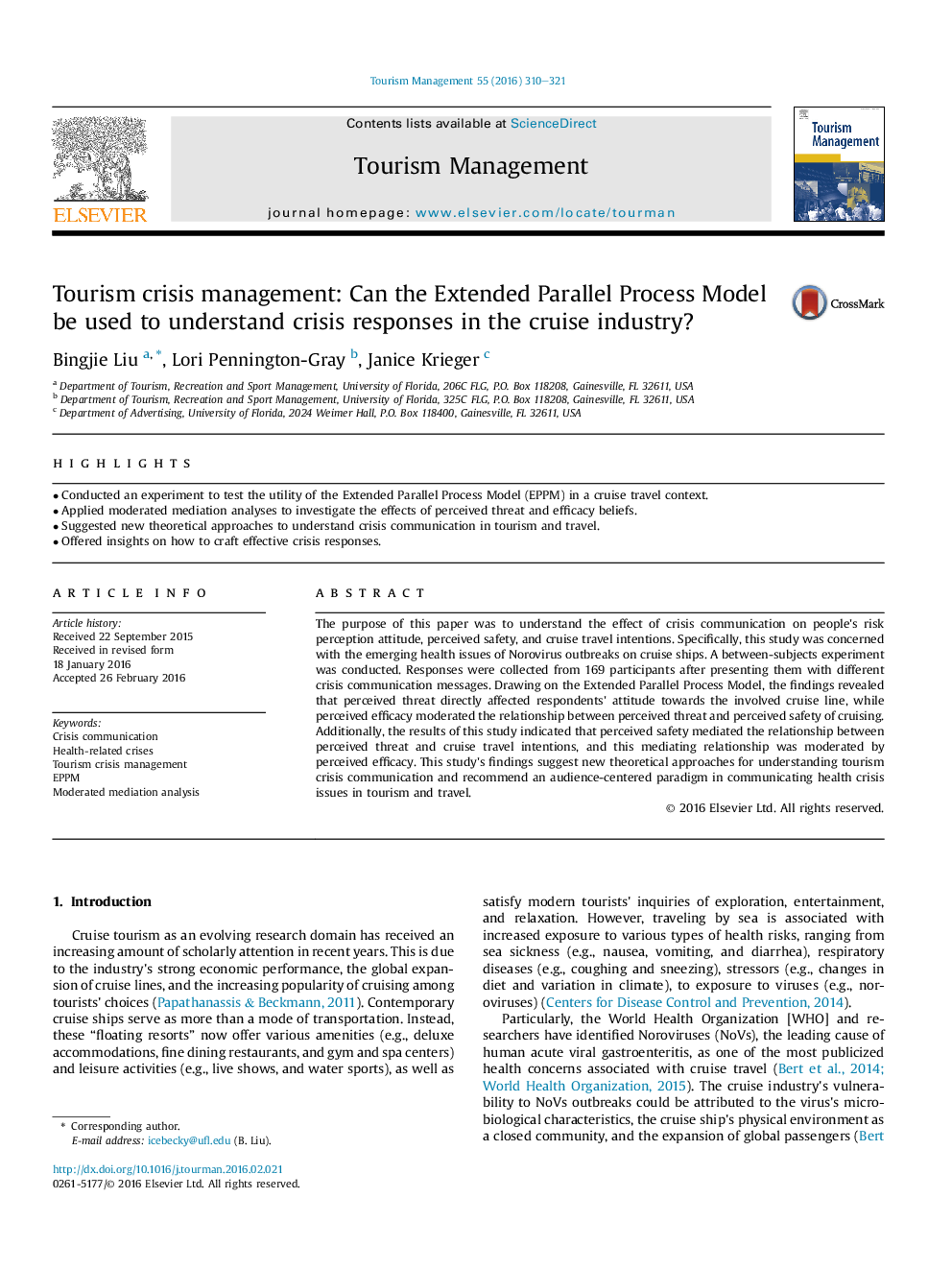| Article ID | Journal | Published Year | Pages | File Type |
|---|---|---|---|---|
| 7421618 | Tourism Management | 2016 | 12 Pages |
Abstract
The purpose of this paper was to understand the effect of crisis communication on people's risk perception attitude, perceived safety, and cruise travel intentions. Specifically, this study was concerned with the emerging health issues of Norovirus outbreaks on cruise ships. A between-subjects experiment was conducted. Responses were collected from 169 participants after presenting them with different crisis communication messages. Drawing on the Extended Parallel Process Model, the findings revealed that perceived threat directly affected respondents' attitude towards the involved cruise line, while perceived efficacy moderated the relationship between perceived threat and perceived safety of cruising. Additionally, the results of this study indicated that perceived safety mediated the relationship between perceived threat and cruise travel intentions, and this mediating relationship was moderated by perceived efficacy. This study's findings suggest new theoretical approaches for understanding tourism crisis communication and recommend an audience-centered paradigm in communicating health crisis issues in tourism and travel.
Related Topics
Social Sciences and Humanities
Business, Management and Accounting
Strategy and Management
Authors
Bingjie Liu, Lori Pennington-Gray, Janice Krieger,
